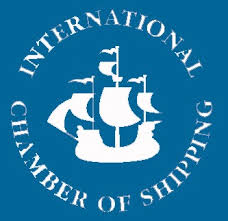The International Chamber of Shipping (ICS) has agreed that the shipping and bunker refining industries should work to the possibility that the global 0.5% sulphur in fuel cap, required by the International Maritime Organization (IMO), is more likely to be implemented worldwide from 2020, rather than 2025.
Annex VI of the IMO MARPOL Convention allows for the possibility that implementation of the global sulphur cap – which will dramatically increase the cost of marine fuel for the shipping industry worldwide, perhaps by as much as USD50 Billion a year – can be deferred until 2025.
This decision is meant to be subject to the results of a fuel availability study that IMO is legally required to complete before the end of 2018.
“While postponement of the sulphur global cap until 2025 is still a possibility, the shipping and oil refining industries should not assume that this will happen simply because they are unprepared. ICS has concluded that, for better or worse, the global cap is very likely to be implemented in 2020, almost regardless of the effect that any lack of availability of compliant fuel may have on the cost of moving world trade by sea,” ICS Chairman, Masamichi Morooka, explained.
ICS said that despite its repeated requests, IMO Member States have so far refused to bring forward the conduct of the fuel availability study.
“If supply problems are identified at the end of 2018 this will be far too late for governments to take action. ICS member national shipowners’ associations have therefore concluded that a political decision may in effect already have been taken, at least by the United States and the European Union which view the global cap as a public health issue,”ICS said.
ICS’s position is influenced by the fact that the EU has already agreed, regardless of any decision by IMO to postpone the global cap, that a 0.5% sulphur limit will apply to international shipping within 200 miles of the coast of all EU Member States.
“In theory, if the global cap was not implemented until 2025, this would create a narrow corridor along the coast of North Africa in which ships could continue to burn less expensive residual fuel with a sulphur content of 3.5%. ICS believes that the EU Member States will be unlikely to permit this and will therefore push hard at IMO for global implementation of the 0.5% requirement in 2020,” ICS added.
Copyright Ships & Ports Ltd. Permission to use quotations from this article is granted subject to appropriate credit given to www.shipsandports.com.ng as the source.

